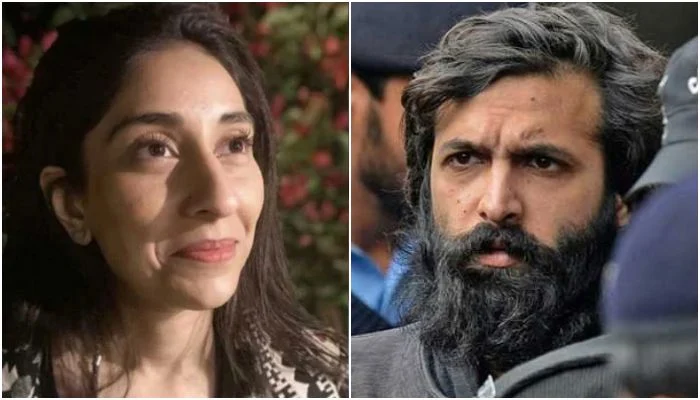Convicted murderer Zahir Jaffer has filed a review petition in the Supreme Court, challenging its May 20 ruling that upheld his death sentence for the brutal killing of Noor Mukadam in 2021. His plea raises questions about the reliability of video evidence used in the trial and argues that his mental condition was never fairly assessed or presented in court.
Plea Targets Evidence and Mental Evaluation
In the petition filed through Advocate Muhammad Usman Mirze, Jaffer claims the prosecution heavily relied on unverified video recordings. According to him, the videos — cited as proof of him being “last seen” with the victim — were not formally shown during trial proceedings. Instead, the evidence was introduced through oral statements and lacked authentication from forensic experts.
The plea argues that without these recordings, one of the key links in the prosecution’s circumstantial evidence breaks down, weakening the case for a death sentence.
“No Proof of Video Authenticity”
Jaffer’s legal team contends that even the forensic report from the Punjab Forensic Science Agency (PFSA) does not meet the legal standards. The report was not presented by the forensic experts themselves, nor was it validated in court under oath.
The plea states: “The authenticity of the video recordings remains unproven. Without their validation, the basis for convicting the petitioner using circumstantial evidence falls apart. The Supreme Court’s verdict from May 20 should therefore be reconsidered.”
Read: Pakistan Counters Indian Allegations at UN Security Council
Mental Health Claims Surface Again
Another major component of the review petition is Jaffer’s mental state. The plea accuses the courts of failing to properly examine whether Jaffer was mentally fit to stand trial. It argues that the issue was neither taken seriously by the trial court nor properly addressed during the legal process.
According to the petition, “The question of mental capacity was completely overlooked. No psychiatric evaluation was conducted during the trial. The signs of Jaffer’s mental health condition were ignored or dismissed as fabricated.”
The plea references a previous Supreme Court ruling in the Safia Bano case, which stressed the need for thorough mental health evaluations in such cases.
Petitioner Labels Himself a ‘Pariah’
Jaffer also claims he was treated unfairly throughout the proceedings. He describes himself as being viewed as a “pariah,” with all signs of mental illness dismissed without proper investigation. His team insists that no meaningful attempt was made to assess whether he could defend himself in court.
The plea states: “There was no public questioning or assessment to determine if the petitioner had the mental capacity to participate in his defense. This is a serious legal oversight.”
Medical Board Examines Jaffer
In a related development, a two-member medical board from Pakistan Institute of Medical Sciences (PIMS) evaluated Jaffer’s physical and mental condition inside Rawalpindi’s Adiala Jail on Monday. The examination followed a formal request from jail authorities as part of the legal process for submitting a mercy petition to the President.
The board included Dr Amir Naveed from the Neurology Department and Dr Shafqat Nawaz from Psychiatry. Their task was to assess Jaffer’s psychological state and prepare a report that will be attached to the mercy plea.
Findings from Jail Authorities
Officials revealed that Jaffer was mentally stable when first incarcerated. He showed no signs of psychiatric illness at the time. However, after being sentenced to death, he spent two months under medical supervision at the jail hospital before being declared fit and moved to the death cell.
The petition suggests this post-sentencing treatment supports the argument that Jaffer’s mental condition deteriorated — or was already compromised — and should have been properly evaluated in court.
Legal Battle Continues
This review petition adds another chapter to a case that has drawn national attention since 2021. Noor Mukadam, the daughter of a former ambassador, was brutally tortured and murdered at Jaffer’s home in Islamabad. Despite repeated escape attempts, she was prevented from fleeing by household staff and was eventually killed.
With public outrage and legal complexities still swirling, the Supreme Court now faces the task of deciding whether Jaffer’s arguments warrant a second look at the country’s most closely watched murder case in recent memory
Follow us on Instagram, YouTube, Facebook,, X and TikTok for latest updates
